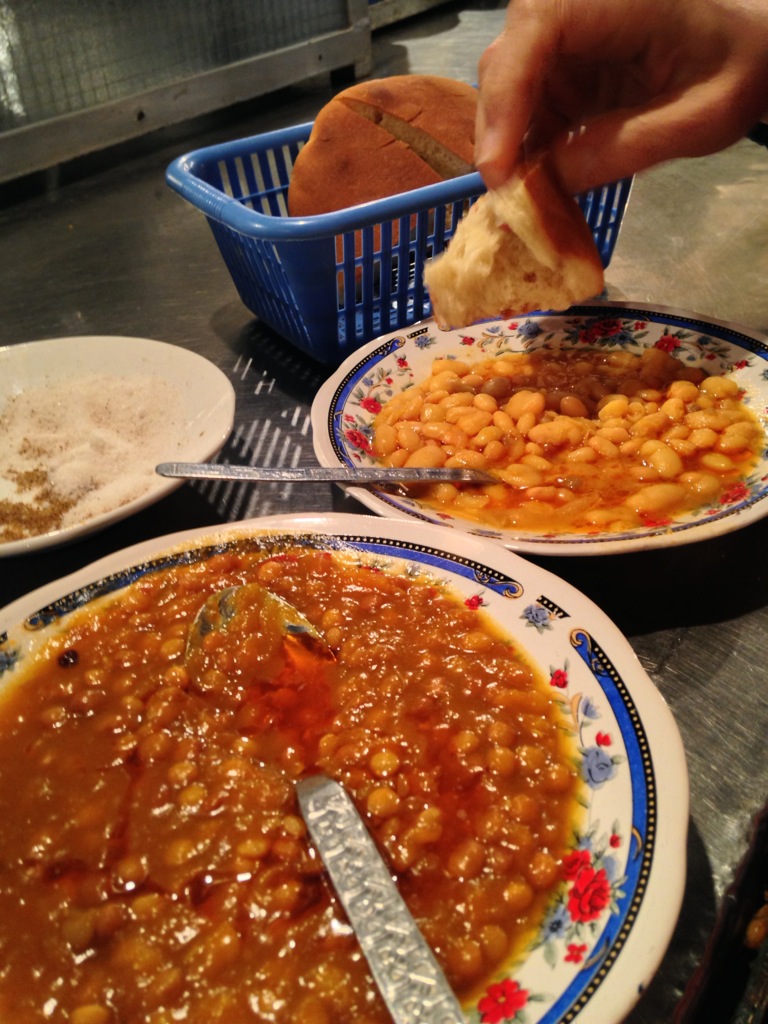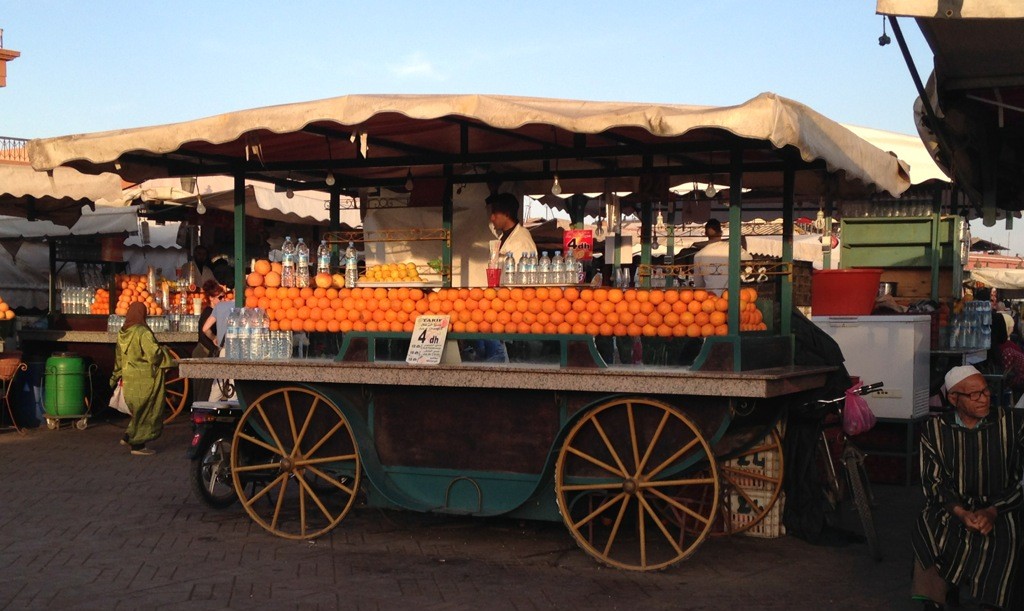
Escorting In the Night: Jemaa El Fna
The plaza at Jemaa El Fna is never really empty: some of the juicers of oranges probably pass their entire lives there, and even early in the morning there are snake charmers and cobras, the appliers of henna with their syringes of plant dye, and the Gnawa head spinners showing off their tassels, brass cymbals and Sufi mysticism.
When the sun gentles–and it must, every night it must–the space really begins to fill. More sophisticated musical acts arrive with banjos and drum circles. Storytellers, too. And acrobats. Then finally come the benches, fires and foodstuffs that will make up a pack of sixty food stalls.
The people of Marrakesh arrive too…the Fna is not just for tourists.
As the sun sets, you hear the call to prayer and the smoke of seared lamb calls the eaters to dine.
Our bread and soup comes from the smaller, one-pot stalls that serve mostly Moroccans. There we learn how the locals eat: tearing up their bread first and having the beans ladled atop, getting a meal to go by having a bread round cut open and a thicker stew poured inside.

Dining simply at the Jamaa El Fna. Fresh bread, stewed lintels, and stewed white beans. Both dishes are garnished with olive oil.
Drums fill the night. You must get close if you want to hear the story or the song.
Will you have your fortune told?
Perhaps a strong, sweet, minty tea to bring the evening to a close?
From the bright lights of Marrakesh,
Chris



This sounds just like the pier at the end of Duval Street in Key West after sunset, except Key West has fewer snakes….but perhaps more snake oil salesmen.